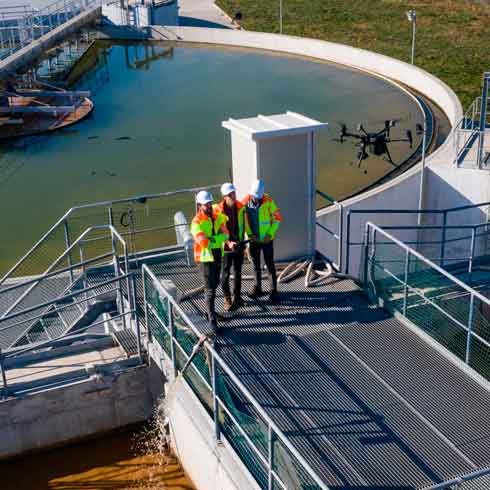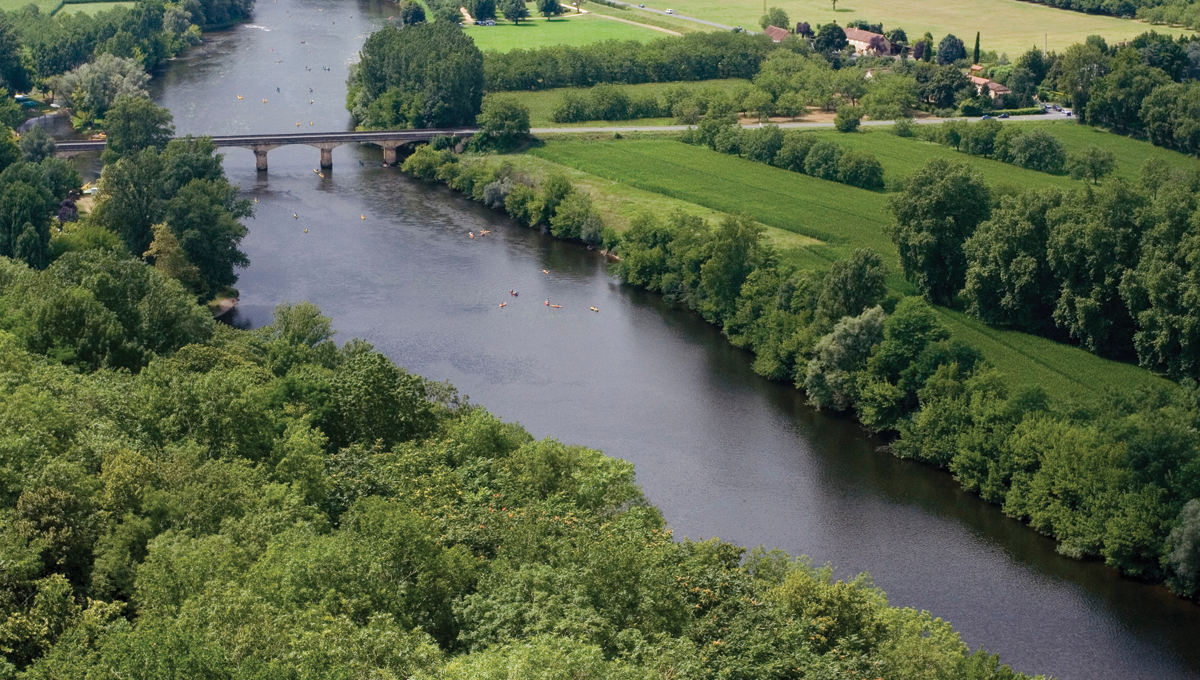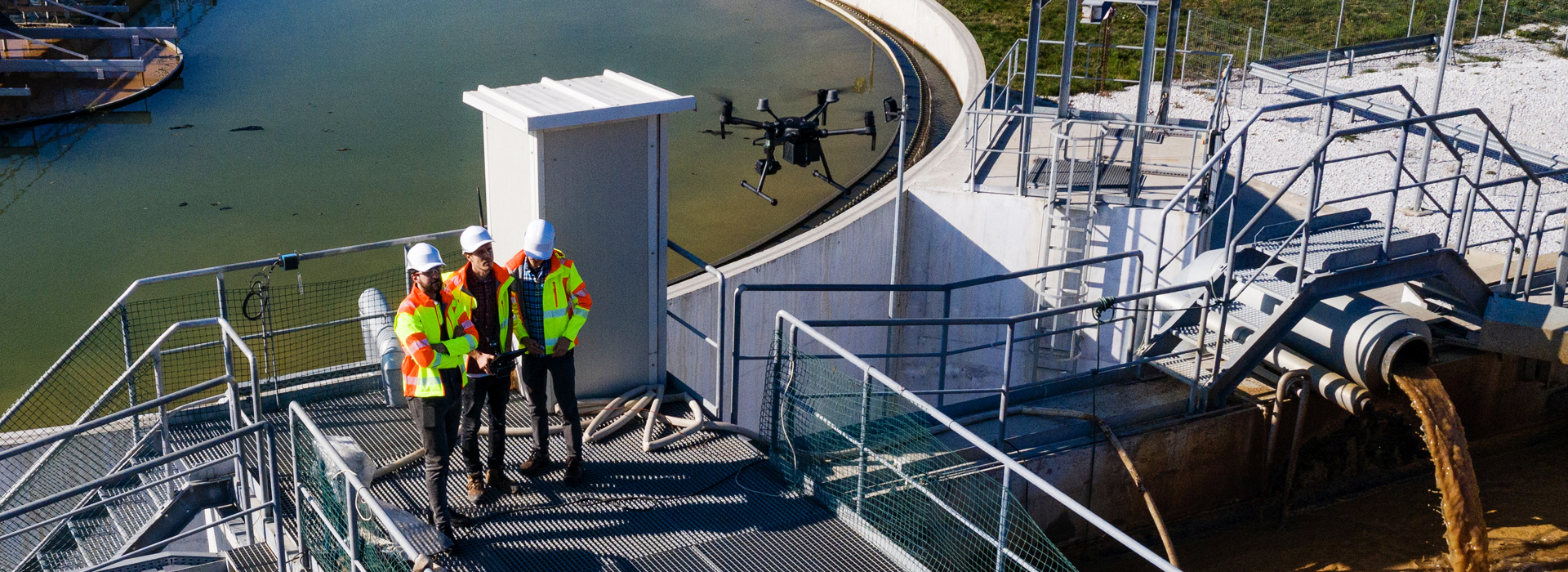SIAAP
dss+ supports SIAAP's biggest Seveso site on its journey to safety excellence.
Founded in 1970, the wastewater treatment authority for the Paris metropolitan area SIAAP transports and treats the rainwater, industrial process water and wastewater of the nine million inhabitants of four French regions: Paris, Seine Saint-Denis, Val de Marne and Hauts de Seine. In its six treatment plants in the Paris greater urban area, SIAAP employs 1,700 public sector employees. Of these sites, Seine Aval is the largest treatment plant in Europe. This historic site, founded in 1940, covers 600 hectares, works with activated sludge and produces biogas through anaerobic digestion of the sludge.

Transforming the operating safety culture at SIAAP
Despite a modernisation of the plant aimed at improving the treatment performance, the Seine Aval site has experienced a number of safety incidents. The most recent, fire in the clarifloculation unit in July 2019, prompted the SIAAP managing director, Jacques Olivier, to put out a call for tenders with the support of French government agencies for an independent work safety audit.
"We wanted to benchmark ourselves against existing industry best practices around the world and dss+ seemed the best partner to do so."
PIERRE HODOT, SAFETY DIRECTOR SIAAP
Conducted by dss+, the audit set out to control the risks associated with the plant’s activity in order to ensure the continuity and the quality of the Seine Aval service which treats around three-quarters of the water used by the Paris metropolitan area.
Seine Aval – a Seveso industrial site
Due to its manufacturing processes, the Seine Aval site was classified as a SEVESO “Upper Tier” site in 2010. In addition to the hazards common to any industry, this classification was triggered by two key aspects:
- The presence of biogas can create explosive atmospheres.
- The use of chemical reagents which, when mixed, can generate a chlorine cloud that can disperse up to 2 kilometres from its point of origin.
"Although we already had a high standard of work safety, we endeavoured to improve it even further given the SEVESO Upper Tier classification," Mr. Olivier points out. SIAPP thus introduced a more stringent safety policy throughout the site, framed by a special intervention plan to protect the population and the environment.
These initial actions allowed the site to make some progress, but following a number of serious industrial incidents an external work safety audit was commissioned.
"In order to be able to identify root causes, but above all take the necessary steps so that we can progress to a level that will guarantee the safety of our employees and the local community, we decided to change gear."
JACQUES OLIVIER, MANAGING DIRECTOR.
An operational safety audit led by dss+ focuses on 6 key areas
In order to address the risks and priorities, and identify areas for improvement, the work safety audit by dss+ was split into six key themes which were the subject of an in-depth diagnostic:
- Prevention of fire and explosion risks (ATEX/ explosive atmosphere)
- Fire safety
- Pipelines and their capacity for hazardous media
- Safety of electrical installations
- Operating safety
- Incident management
"In order to be able to identify root causes, but above all take the necessary steps so that we can progress to a level that will guarantee the safety of our employees and the local community, we decided to change gear," Mr. Olivier explains.
Based on the industrial heritage of DuPont, the dss+ approach draws on more than 200 years of experience that has been codified in the form of good practices. An independent company since September 2019, the operational management consultancy with global reach puts its expertise at the service of companies to help them improve the safety of their employees and enable them to achieve operational excellence in a tailored approach that includes an assessment, a diagnostic, training, support and coaching.

"Working together with our clients, we build operational resilience: fewer accidents, better safety and enhanced operational performance through better asset and plant management. We help them to transform their operations and achieve sustainable results like we did for SIAAP, an organisation committed to change," says Mathieu Leduc, Director dss+, France.
Despite the unusual conditions imposed in 2020 by the health crisis, the audit was carried out to plan in three phases. The first addressed SIAAP’s short-term goals, and the following two focused on the actions that would:
- Identify improvement opportunities, align the organisation and set it on the path of the safety roadmap developed by dss+.
- Implement the roadmap and strengthen operational safety to achieve rapid impact.
- Develop and reinforce the necessary practices to safeguard long-term change.
dss+ consultants conducted more than 150 on-site interviews, spending six full weeks on site, not to mention an analysis of existing documentation and the production of a summary account and reports.
"The audit was carried out through a series of interviews and meetings in the field, through observation of the execution of tasks, examination of a number of documents during steering committee and project meetings. We also organised workshops by topic." Yann Bourbon, director of Seine Aval explains.
The unanimous view of all those involved in the project at all levels at the Seine Aval site and within dss+, the audit was conducted in an atmosphere of complete trust and openness that was essential to its success. "By selecting a partner that is well-recognised at an international level also made the Seine Aval employees more accepting of the dss+ auditors. They understood that we wanted to do everything in our power to get the most objective view possible of our safety culture maturity level." Mr. Olivier explains.
The very thorough and in-depth audit gave SIAAP an insight into the status quo and a better understanding of the levers it needed to work on.

Operational changes that are already initiated and underway
The audit was a real revelation for all of Seine Aval’s work teams. It created collective awareness of the need to place safety at the centre of all steering bodies. New procedures have already been initiated at an organisational level such as:
- The centralisation of all feedback from the SIAAP Safety Department, which transmits it to the DRIEE - Direction Régionale et Interdépartementale de l’Environnement et de l’Energie (the technical services of the Prefecture)
- The setting up of a contractor coordination unit (operation, maintenance, works) within a process unit dedicated to "water treatment".
A clear outcome paving the path for success
"The audit findings are a testament to the work that SIAAP and dss+ have done together. Without them, we would not have the foundation that will allow us to bounce back. Today, we understand where we are and where we must be tomorrow as a responsible industrial organisation. We must achieve our goal quickly to ensure the safety of our employees and the local community. This is the commitment that SIAAP is making to all the people of the greater Paris area." says Mr. Olivier.
These plans are taking shape through a change in safety culture and processes, as well as significant management changes at the Seine Aval site.
"Working together with our clients, we build operational resilience: fewer accidents, better safety and an enhanced operational performance through better asset and plant management. We help them to transform their operations and achieve sustainable results like we did for SIAAP, an organisation committed to change."
MATHIEU LEDUC, dss+ DIRECTOR, FRANCE